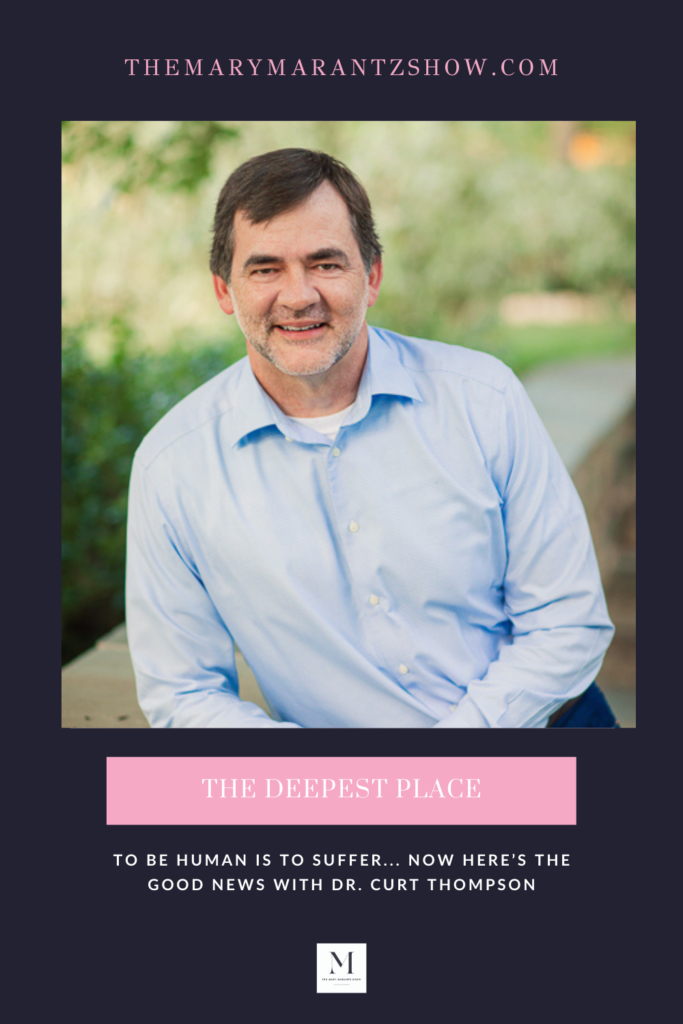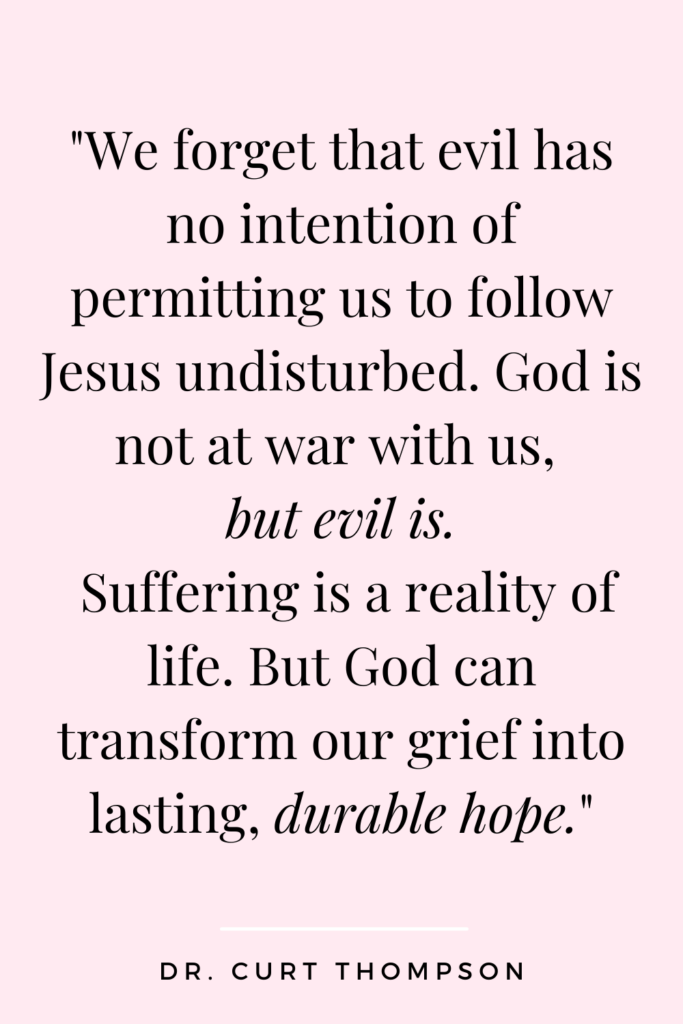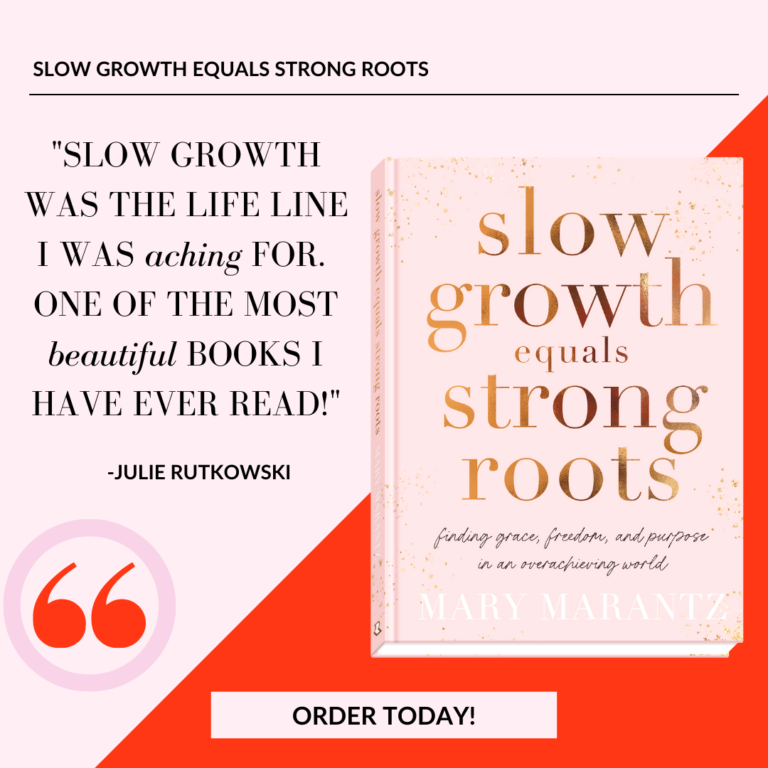
How well do you truly connect with the parts of your story that involve suffering?
Do you find it hard to believe that anything GOOD could come from your suffering?
Today on The Mary Marantz Show, I’m joined by renowned psychiatrist, speaker, and author, Dr. Curt Thompson. And let me tell you, while we may be delving into the depths of human suffering – what you’ll come out of this episode with is durable HOPE.
Dr. Curt Thompson weaves together an understanding of interpersonal neurobiology (IPNB) and a Christian view of what it means to be human — to educate and encourage others as they seek to fulfill their intrinsic desire to feel known, valued, and connected. He understands that deep, authentic relationships are essential to experiencing a healthier, more purposeful life — but the only way to realize this is to begin telling our stories more truly. Through his workshops, speaking engagements, books, organizational consulting, private clinical practice, and other platforms, he helps people process their longings, grief, identity, purpose, perspective of God, and perspective of humanity, inviting them to engage more authentically with their own stories and their relationships. Only then can they can feel truly known and connected and live into the meaningful reality they desire to create.
In his most recent book, The Deepest Place: Suffering and the Formation of Hope, Thompson invites us to explore how the Apostle Paul’s experience of love, secure attachment, and the deeply felt sense of God’s abiding presence carried him through the challenges he faced–and how it can help us not just survive, but flourish in the presence of suffering.
In this episode, we talk about:
- The role of recognizing unresolved wounds and our fears of abandonment.
- The significance of co-regulating emotional distress and the impacts of loneliness
- The four attachment styles that drive our relationships
- Why most of us stop at flimsy hope
“From understanding the signals our brains send, to uncovering the wounds that keep us from truly being seen, this episode will challenge you to reflect on your own journey and explore the healing path to enduring hope.”
How Suffering Multiplies Within Us
Dr. Curt begins the episode by questioning our awareness and connection with the hardest parts of our stories. He suggests that many of us possess the tools to navigate life effectively, but frequently distract ourselves from the parts of ourselves we want to avoid confronting.
However, the brain, which is generally considered trustworthy, sends us subtle signals that go beyond the obvious, indicating to us that we can no longer operate in this manner.
“We are going to do what we are going to do until the system says it won’t do it that way anymore. And, when the system signals it’s done, the real question is, will we then be willing and open to allowing our brain to tell us what it wants to tell us and be present to the fact that there is something else going on that we need to address.”
Our ultimate goal is not some moment of arrival, but a transformative process of personal growth and self-discovery. The longer we choose to bypass that necessary training, the more our growth is hindered, impacting our ability to embrace a fulfilled life.
Mary’s new book, slow growth equals strong Roots is HERE! Click HERE to Order your copy today!
Community as the Embodied Presence of Jesus
Just like physical pain, Dr. Thompson believes that emotional pain should not be ignored. As humans, we are innately wired to be resilient but if we lack secure attachment, many of us become accustomed to burying our pain or utilizing coping methods to survive. Drawing from the teachings of the Bible, he explains that the separation between man, woman, and God, as depicted in Genesis, contributes to our primal feelings of isolation and anxiety.
“If I do not have enough practice learning how to co-regulate my emotional distress I will come to believe that any emotional distress is something I will have to deal with on my own. But what we need more than anything is an embodied experience of sensing what it means to be loved. To share the hardest parts of ourselves with another and experience their mercy and unwavering presence. That is what allows suffering to be transformed in ways that we would never have imagined.”
He suggests that the God of real love desires His image bearers to grow fully into who they are meant to be, keeping in mind that their wounds should not define them.
“But what we need more than anything is an embodied experience of sensing what it means to be loved. To share the hardest parts of ourselves with another and experience their mercy and unwavering presence.”





The Lifelong Journey of Redemption
Ultimately, Dr Curt is emphasizing the importance of being seen and understood by others, and highlights the four attachments that continue to impact us throughout our lives, being seen, soothed, safe, and secure.
“The wounds that we have received in the course of our lives mean that one or more of these experiences did not happen and when they don’t happen we get stalled at certain developmental stages. In which, I then find myself suffering in those spaces but I cover up for them because I am effective enough in other dimensions of my life.”
Though we are capable of learning how to supplement those needs, we will never truly move through them without them being met by others. Therefore creating a safe space, whether it be within family, church, or a small group, allows individuals to take risks, make mistakes, and find security.
It is a lifelong process but that sense of security is the bedrock for personal growth and the development of enduring hope amidst suffering.
From the significance of being present – to our suffering to the vital role of community in our healing process – Dr. Curt offers fresh insights and challenges listeners to explore the underlying wounds that inhibit enduring hope.
“As we lean into transformation, may we find the courage and wisdom to face our suffering head-on and discover the beauty and goodness that await us on the other side.”
I can’t wait for you to take a listen! And if you are looking to give up comparing, performing, and achieving for your worth, I think you’ll LOVE my new book Slow Growth Equals Strong Roots! Available now everywhere books are sold! And while you’re at it, take our Achiever Quiz to see which of the 5 Achiever Types you are….
More From This Episode:
Connect with Curt on Instagram and be sure to pick up his new book, “The Deepest Place: Suffering and the Formation of Hope” wherever books are sold.
You May Also Like:



comments +